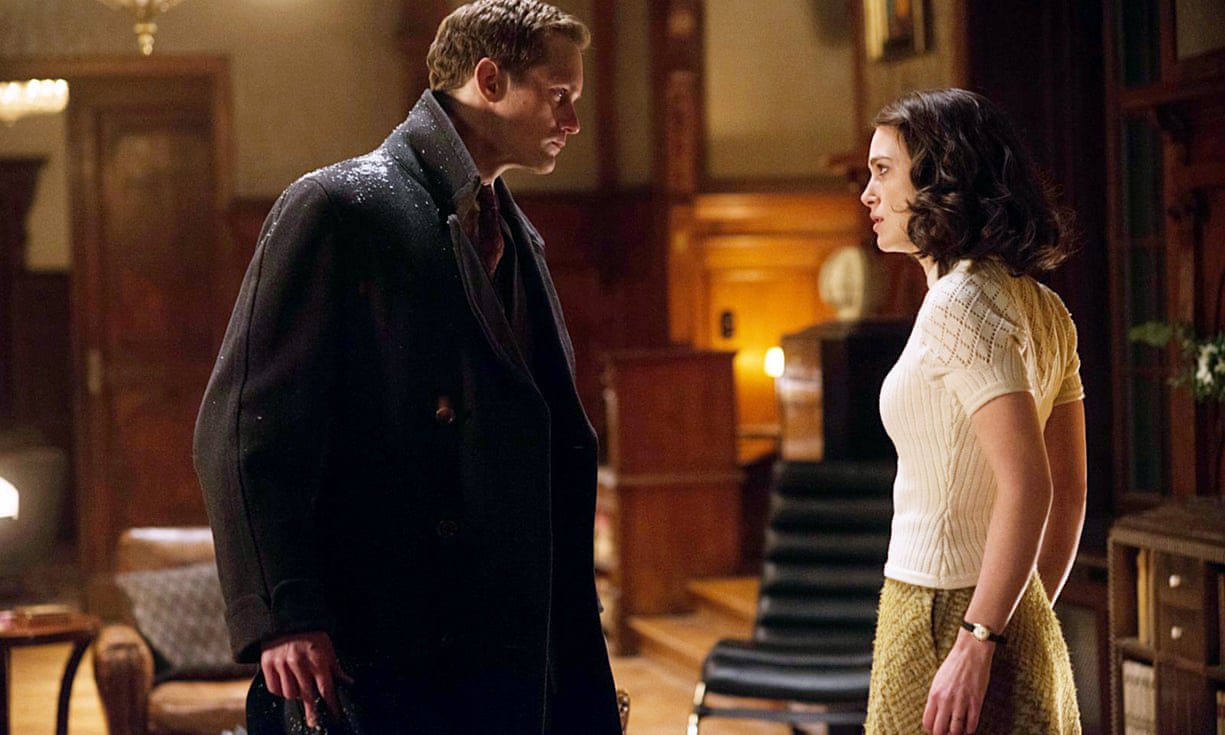James Kent’s adaptation of Rhidian Brook’s novel, The Aftermath, touches on some of the social issues present after the Second World War. By focusing on Germany, the film presents an original perspective on the effects of the war.
The story revolves around Rachael Morgan (Keira Knightley), the wife of a British soldier (Jason Clarke), who reunites with him in the ruins of Hamburg. The couple moves into a mansion belonging to a German widower Stefan (Alexander Skarsgård) and his teenage daughter (Flora Thiemann). Unexpectedly, Rachael’s husband Lewis offers to share the house with the previous owners. As Lewis remains loyal to his duty and is immersed in helping the city, Rachael and Stefan begin an affair.
Keira Knightley portrays the grief and confusion caused by the War. The actress gives the character dimension by presenting her as a wife, a lover, a mother, as well as a victim. The piano scene is arguably the most emotional one in the film: Rachael plays the piano with Stefan’s daughter, who is about the same age as her son would have been had his childhood not been stolen by WW2. Knightley moves from joy to intense grief in a matter of seconds, reminding the audience of the long-term effects of war on those left behind.
Jason Clarke contrasts the cold and disciplined manner expected of a soldier with human sympathy. The character’s moral persona is juxtaposed with that of the other soldiers, who disrespect the citizens of Hamburg, furthermore dramatizing his wife’s affair. Clarke’s peaceful tone of voice brings a relief during the dramatic events.
By setting many scenes in the ruins of Hamburg, the director successfully presents a realistic image of the harshness of war. Moreover, the juxtaposition of the upkept mansion to the rest of the city highlights the fundamentally different positions of the characters; while Rachael struggles to adapt to her new house, the people of Hamburg struggle to find a place to live. In this sense, it makes the audience sympathise less with the protagonist; the rawness of the scenes, including shots of dead bodies, reminds the audience that it is not simply a love story.
The somewhat boring plotline is enriched with beautiful scenery, period costumes and decent acting. Despite the basic nature of the plot however, the production highlights the effects of war on those on both sides of the conflict, which is uncommon in a lot of period dramas. With a story that focuses on prejudice and changing viewpoints, The Aftermath reminds the audience that nothing is black or white, and that everyone is tinted with immorality.
Image Courtesy of Fox Searchlight Pictures

